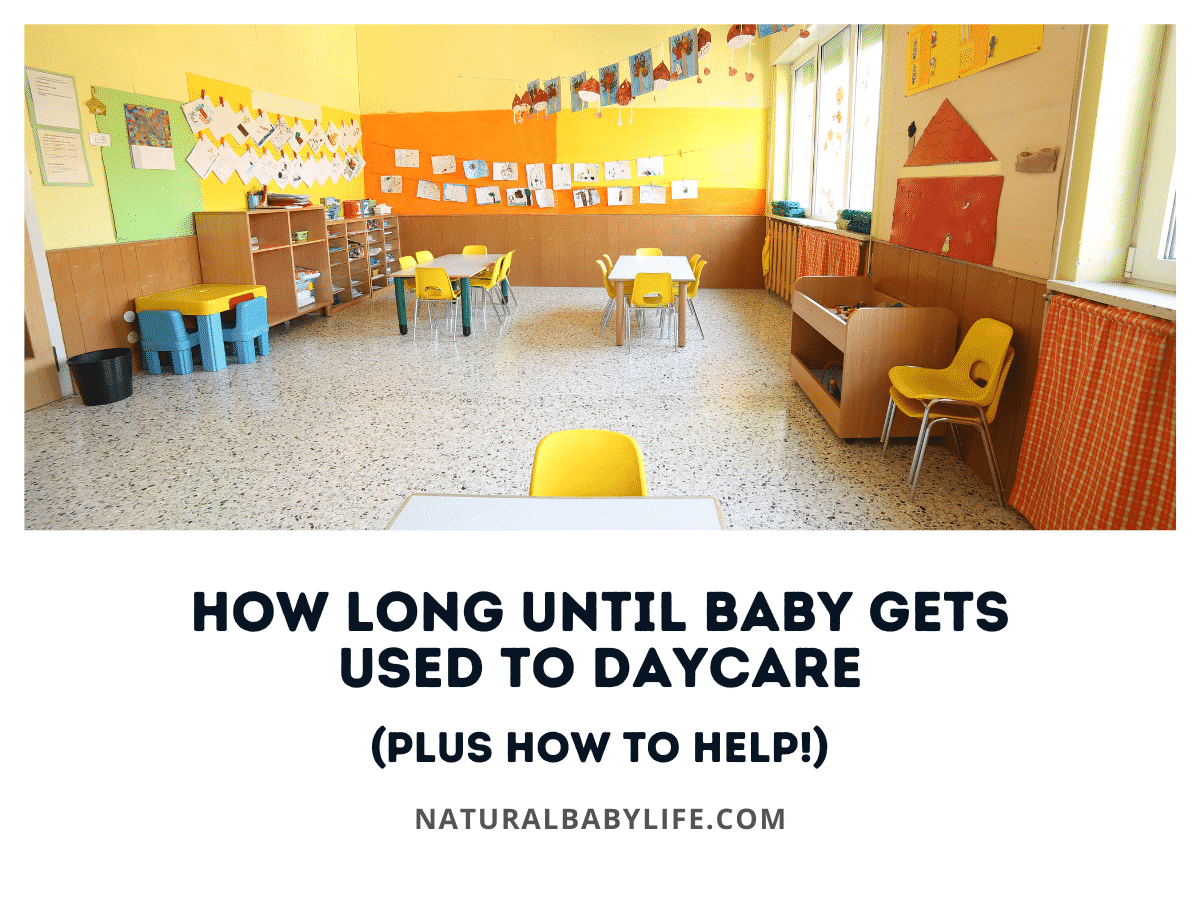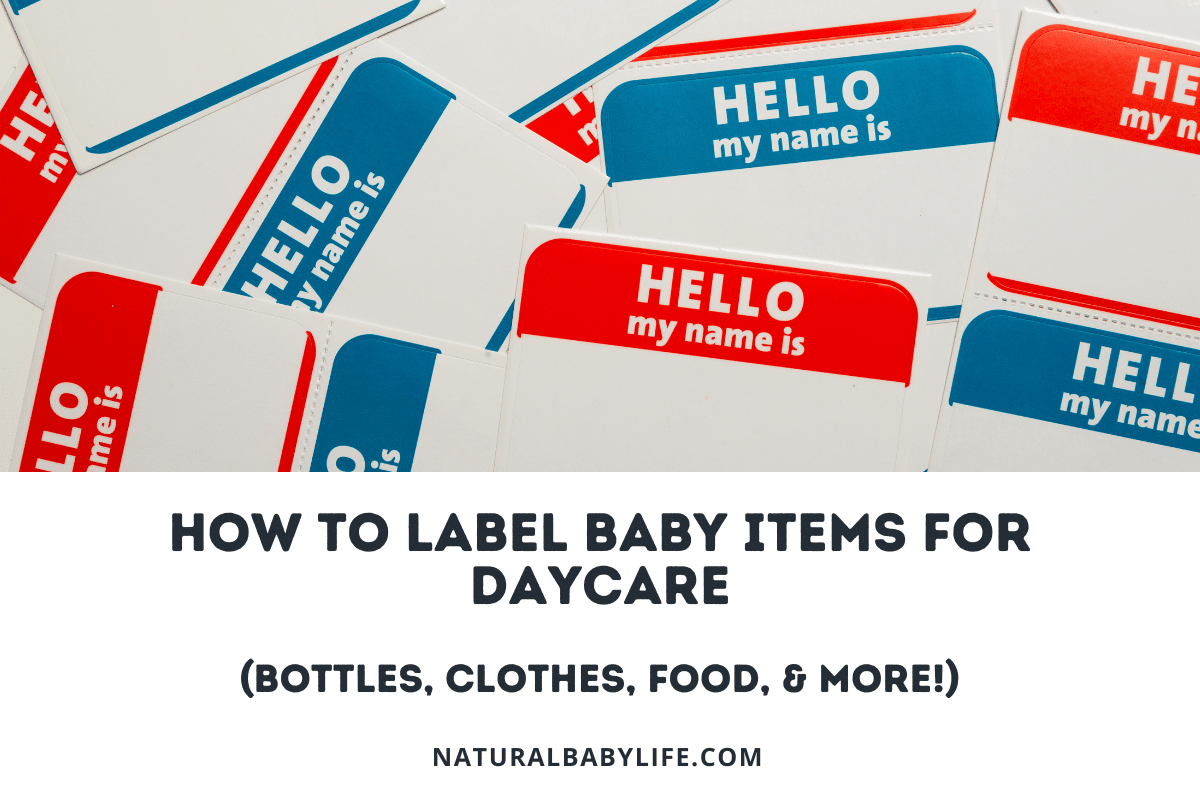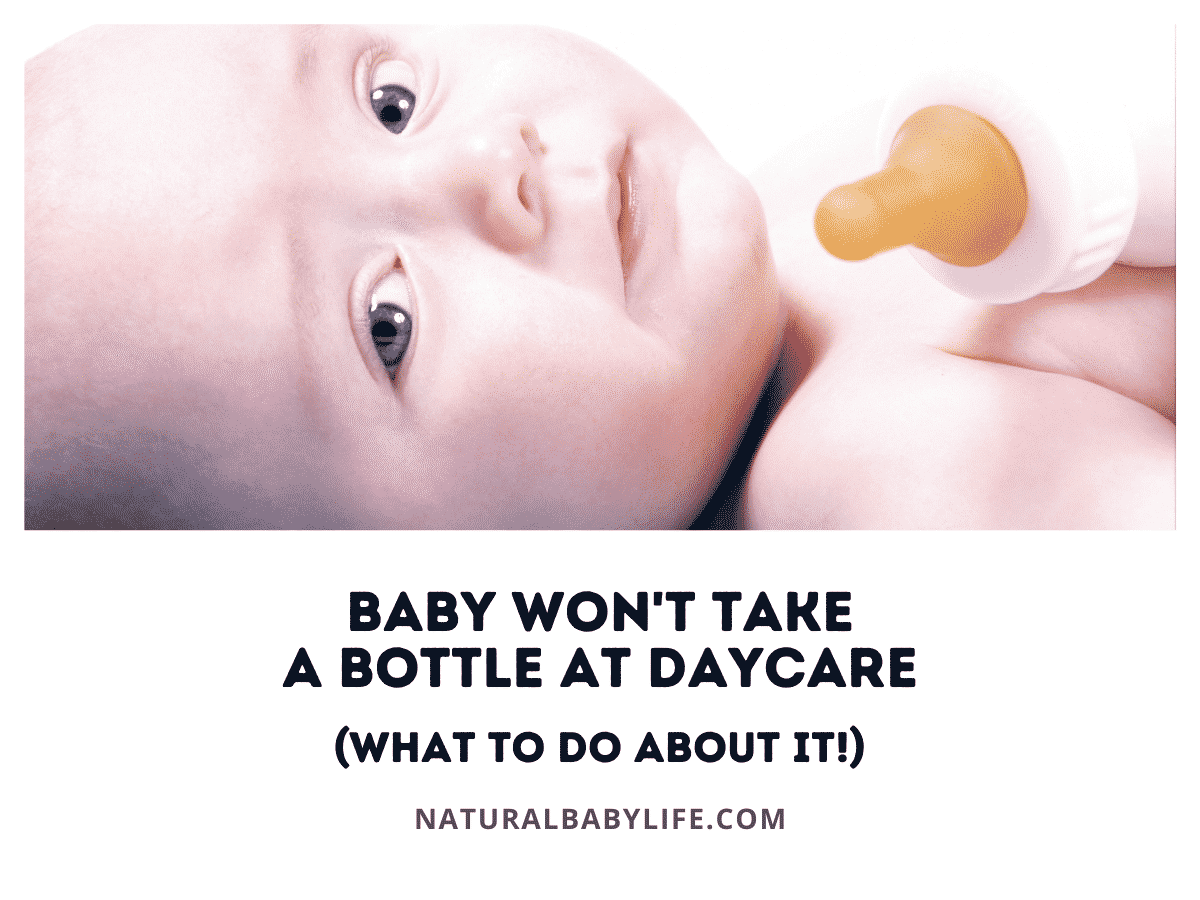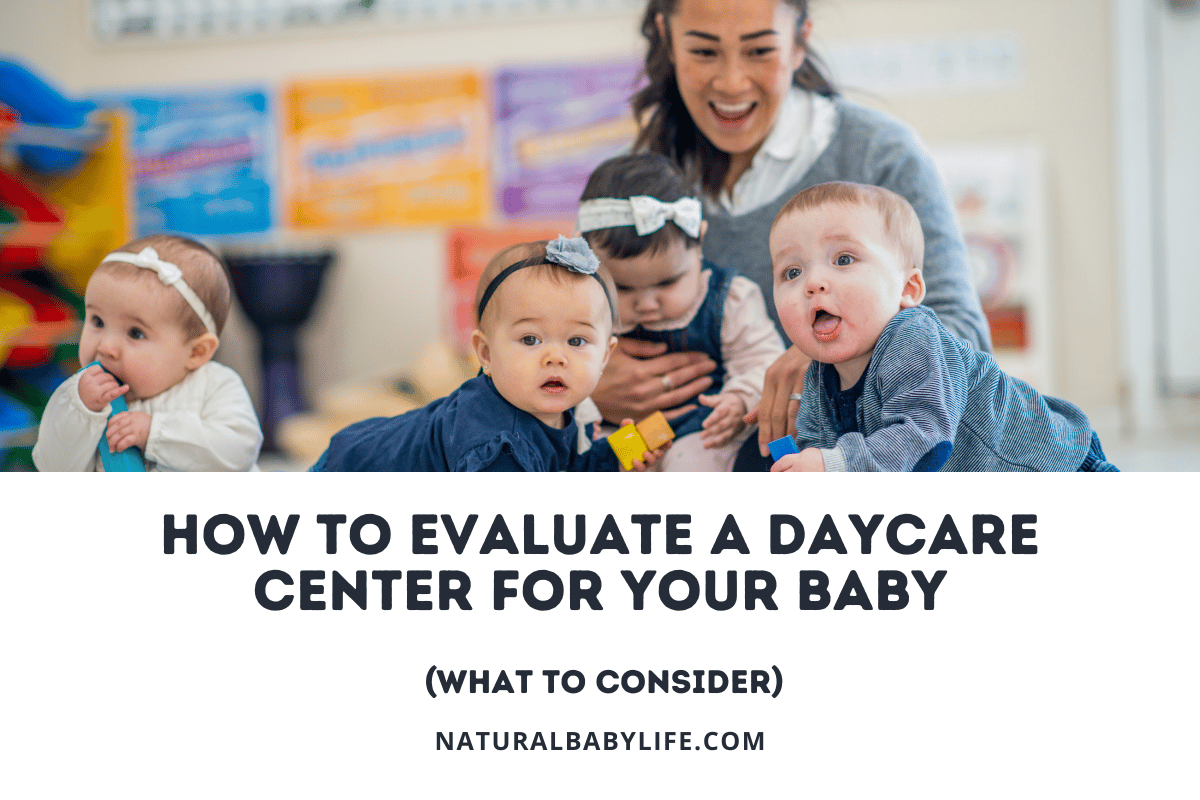Taking your baby to daycare for the first time can be a daunting experience. It may help you to know how long until Baby gets used to daycare.
Children will adapt fairly quickly to their daycare schedule. Most babies will take several weeks to fully adjust to their new environment, although some will adapt more quickly and others may take months due to separation anxiety. Older children may adjust more quickly, especially with advance preparation and something that reminds them of home.
Keep reading to see how long you can expect the tears to last depending on your child’s age. I’ll also give you some red flags to watch out for that can alert you to more serious issues that may be going on.
Table of Contents
How long until baby gets used to daycare?
Whether it’s at six weeks or a year, chances are good that you’ve spent nearly every waking moment (and many sleeping ones!) together since they were born, and the transition to daycare – especially if you’re going directly into full-time care – can be difficult for both of you.
Most babies will adjust to daycare within a couple of weeks. While the drop-offs may be stressful for you, try to focus on creating a routine for your little one instead of trying to comfort them and constantly drawing out the goodbye.
The amount of time it takes a baby to adjust to daycare will depend on the child and their individual personality. Some children adjust with no issues while others can take weeks or even months to fully acclimate.
Baby has separation anxiety
There are many factors that can contribute to the length of time it takes your child to adjust to daycare such as her age and how socialized she is outside of daycare.
Many children will experience separation anxiety which can peak around seven months of age and again between the ages of 18 months and 2 ½ years. Also, between 8 and 12 months of age, your baby can start experiencing anxiety around strangers which may even include relatives and babysitters that your baby was previously comfortable around.
If your child is experiencing some separation anxiety just be aware that this can take weeks, months, even years to get better depending on your child’s temperament, personality, and how you respond to their anxiety.
For example, if they know that you will keep coming back for one more hug when they cry when you leave in the morning, they may continue this behavior for a longer period of time.
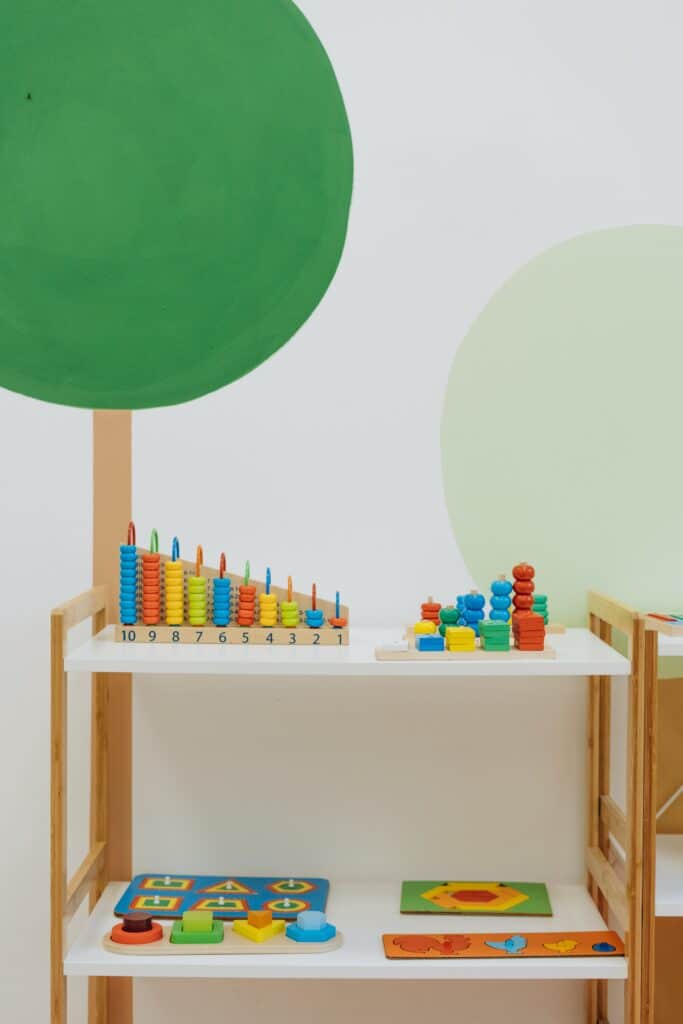
Child cries at daycare all day
Some children will have a hard time transitioning to daycare. Most kids, though, will stop crying for Mom or Dad soon after you leave.
However, if your child’s crying lasts all day long it may be time to evaluate what else could be going on.
Some children need a little more TLC than what daycare workers are physically able to provide. Class sizes can vary from place to place but usually, one worker is responsible for several different babies. Many states put a limit of one adult to four infants in daycare centers.
These kinds of demands can make it impossible to cater to a child who likes being held all day.
If your baby is crying all day, set up a meeting with your child’s teacher and get their take on why your child may be crying so much. They spend a lot of time with your child and they may have some helpful insights.
It may be worth taking your child to his pediatrician to rule out any underlying issues such as earaches or colds.
Signs your child is being mistreated at daycare
Every parent’s fear is that your child’s reluctance to let you leave or crying is caused by neglect or mistreatment at the center.
It’s hard to know the difference between whether your baby is just unhappy not being with you or if your child is being treated badly at daycare especially when your baby is unable to talk.
Here are some signs to look out for that may alert you to more serious issues going on at daycare:
- Coming home with unexplained bruising, burns, black eyes, cuts, and bite marks. Repeated injuries of any type should raise a red flag.
- Changes in your child’s normal behavior or disposition.
- Appearing frightened around caregiver and other adults.
- Unusual extremes in behavior.
All these can be signs of emotional and physical abuse. However, with infants and toddlers mood swings and emotional breakdowns can be common occurrences.
If you notice one or more of these signs in your child, be on guard and do some investigating into what could be going on. Many daycares now offer apps you can download with the ability to view your child’s room at any time during the day in real time.
If you’re concerned, enlist the help of friends and family to make sure someone is watching most of the day. If live video footage is not available, schedule a talk with your child’s teacher or pop in the daycare when they aren’t expecting you. The best centers welcome and accomodate surprise visits from caregivers without an appointment.
Always go with your gut instinct. If something is telling you that your child is being mistreated, it’s best to err on the side of caution.
Preparing an infant for daycare
Leaving your baby at daycare for the first time can be a challenging time.
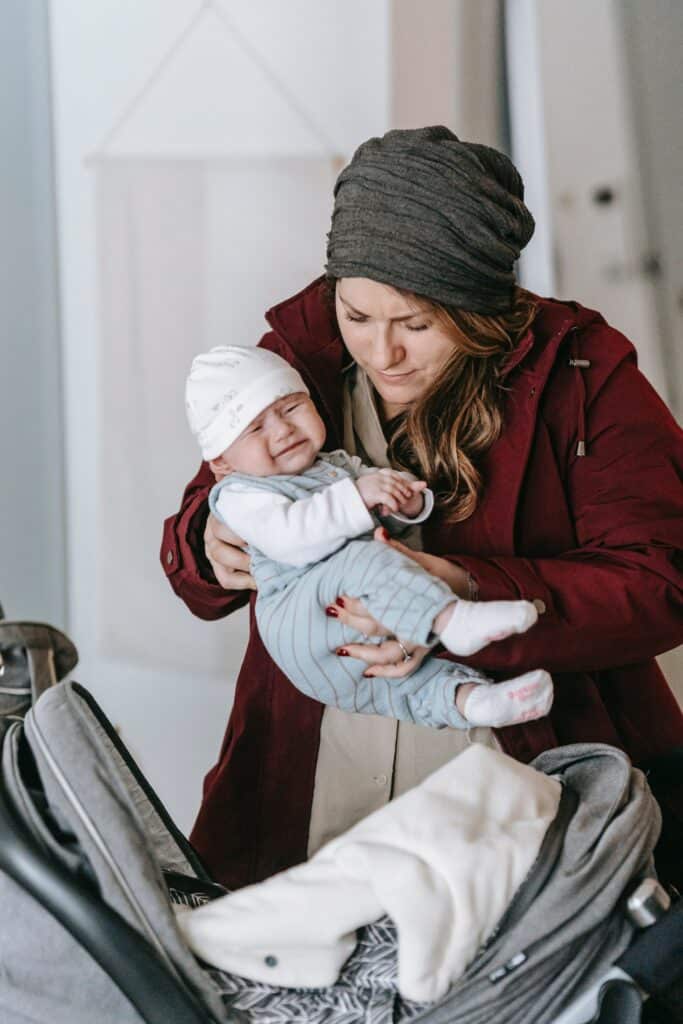
The good news is most babies age six months and under adjust very easily to their new caregivers. It’s usually mom and dad who have the most trouble.
There are a few ways to help ease the transition into daycare for both of you.
How to handle the first day of daycare
With the big day approaching, it’s important to prepare both yourself and your infant for what lies ahead.
Give yourself plenty of time
The first day of daycare you don’t want to be running late. Your baby will pick up on your tenseness and likely the both of you will be irritable.
Give yourself plenty of time to get your baby settled (and steal those extra hugs and kisses) and briefly talk with your child’s teacher.
After all, this first day can set the mood for the rest of your child’s time in daycare, and getting off on a good foot is important. Besides, you don’t want to have to rush into work teary-eyed if the drop-off is harder on you than your baby.
Create a calm goodbye routine
Give your baby a hug and kiss then firmly and lovingly tell them goodbye.
Try to keep whatever routine you come up with consistent so that your baby knows what to expect.
Know how to check in with your child’s teacher
Most daycares have an app you can download with information on what your child is doing and also the ability to see real-time video footage of your child’s room.
If not, ask for some pictures from your child’s teacher to let you see how your baby is adjusting.
Starting daycare at 1 year old
In many instances, starting daycare when your child is an infant is much easier than starting when your child is older.
At one, your child is old enough to have reached certain developmental milestones such as stranger anxiety and is more likely to have separation anxiety, particularly if they have spent the first year of their life at home with you.
They also have a sense of routine and awareness of their day-to-day surroundings and will notice that things are different than usual.
How long for a 1-year-old to adjust to daycare?
While children in the U.S. are likely to start daycare at around six weeks old, many parents will choose to hold off until their first birthday.
The typical one-year-old can take anywhere from a few days to four weeks to adjust to their new routine in daycare. Expect a few tears along the way and a transition period as you both acclimate to things.
Allowing your child to bring something from home such as their special blanket or your t-shirt can provide your little one with some comfort from home.
Daycare adjustment period for toddlers
Expect your toddler to take around two weeks to adjust to life at daycare.
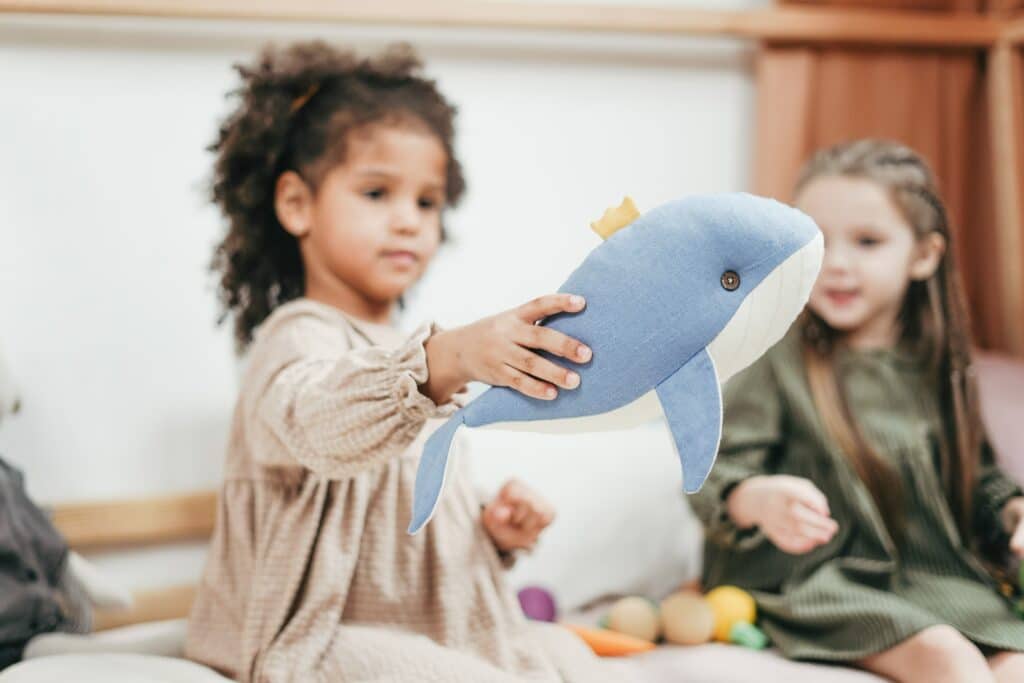
Toddlers provide a unique opportunity as they are starting to understand what they are being told. Spend time preparing them for what will happen at daycare and try to make them excited about all the new friends they will make.
Here are some tips to prepare your toddler for the days ahead:
- Create a picture routine book – Enlist your child’s teacher to help take pictures of the daily routine and create an album. This lets your child know what to expect from daycare as well as familiarizes them with their new surroundings and can help lessen any anxiety they may be feeling.
- Bring something that smells like home – Whether it’s a favorite stuffed animal, blanket, or mom’s t-shirt, this item can give your child a little comfort and security.
- Take them to daycare for a walk-through – Simply letting them tour their new school prior to the first day can go a long way toward letting them know what to expect. Show them all the fun toys they will have to play with and let them see the other children having fun.
- Give your child a time reference – Give them some certainty about when you’ll be back. You can relate it to how light or dark it is outside or even get a watch with animals instead of numbers.
By the way, if you are looking for some awesome gifts for your daycare teacher then I’ve created a resource just for you!
Conclusion
As you transition your child to daycare, the sooner you can establish a drop-off routine, the sooner you can anticipate a calmer, less unsettling morning. Nobody wants to talk out of the classroom door and leave their child behind crying, so your efforts to ease the transition will result in less stress for both you and your little one.

